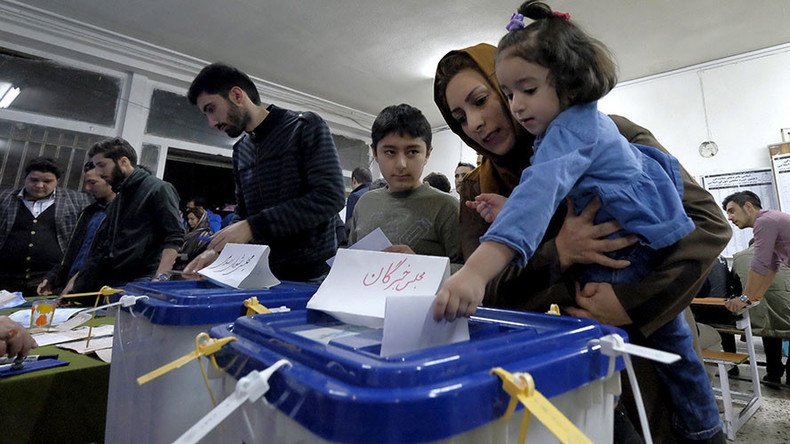Iranian moderates secure majority in parliament and assembly of experts

Iran’s reformists and moderate conservatives have won a parliamentary majority, according to election results released by the Interior Ministry. Earlier, it was announced that the moderates also secured a win in the Assembly of Experts vote.
Reformists who back extended relationships with western countries won about 85 seats in the parliament, while moderate conservatives got another 73 seats, thus being able to secure a 54 percent majority in the 290-seat legislature in case they form a coalition, AP reported citing Iranian state TV.
At the same time, hard-liners, who opposed Iran’s nuclear deal with the world powers signed in July 2015, won only 68 seats, which equals 23 percent of the total number of seats in the parliament.
Iran’s moderates may defeat hardliners in crucial parliamentary election – early results https://t.co/rkERQAEQ6Xpic.twitter.com/fvV4OwoU5P
— RT (@RT_com) February 28, 2016
Five more seats will go to religious minorities and the remaining 59 seats will be allocated in a runoff, which is expected to be held in April, according to AP.
Earlier it was announced that reformist-backed candidates aligned with President Hassan Rouhani won all 30 parliamentary seats in the country’s capital of Tehran
The voter turnout for the elections was 62 percent, according to Iranian Interior Minister Abdolreza Rahmani Fazli.
Earlier on Monday, it was announced that Iran’s moderates also won a majority of seats in the Assembly of Experts, a clerical body charged with electing the Supreme Leader of Iran and monitoring his activities as well as with removing him. Moderates got 52 seats in the 88-member assembly securing a 59 percent majority.
Iran elections: Long lines as millions vote to 'increase dignity & disappoint enemies'https://t.co/6Klj5nBeDnpic.twitter.com/4CDZOz99Gw
— RT (@RT_com) February 26, 2016
The Assembly’s next term, lasting until 2024, is very likely to choose the next Supreme Leader of Iran. Because of 76-year-old Ayatollah Ali Khamenei’s age, his successor could well be among those elected this week.
Iranian President Hassan Rouhani and former President Akbar Hashemi Rafsanjani, who both belong to the moderate camp, also won seats in the Assembly of Experts. At the same time, several prominent hard-liners, including Ayatollah Ahmad Jannati, were also re-elected.
Jannati is the head of the Guardian Council, which is a constitutional watchdog that pre-approves election candidates. However, the current leader of the Assembly of Experts, Ayatollah Mohammad Yazdi, who is also a member of the hard-liners’ camp, was not re-elected.
#IranVotes : Here’s the break down (Op-Ed by Pepe Escobar) https://t.co/LYhOgx4gazpic.twitter.com/4QH3mxWSfg
— RT (@RT_com) February 26, 2016
The outgoing parliament is dominated by hard-liners, otherwise known as “principlists,” who currently hold 65 percent of the seats. The principlists were largely skeptical about Iranian President Rouhani’s policy of re-engagement with the West. However, the incoming parliament is expected to be more favorable towards his political course that started with the July 2015 nuclear deal.












